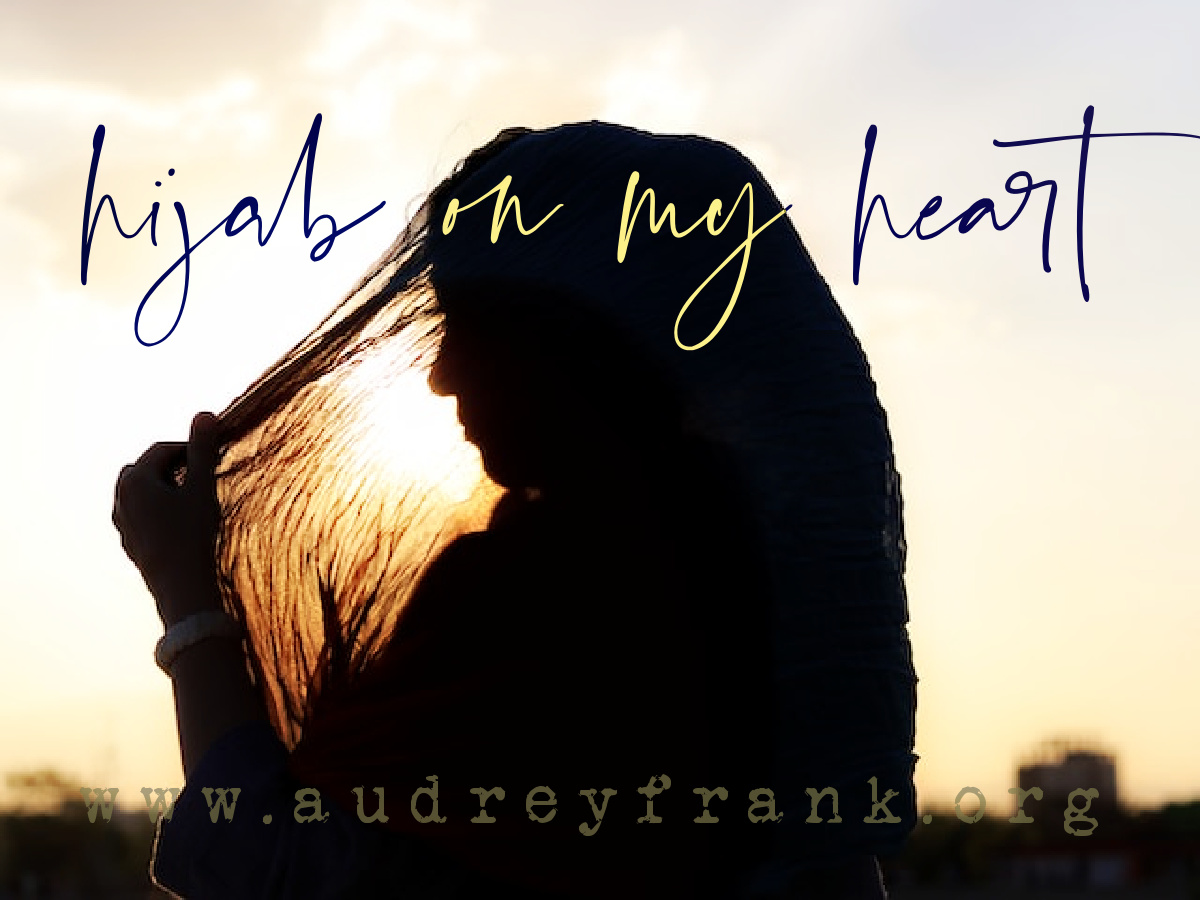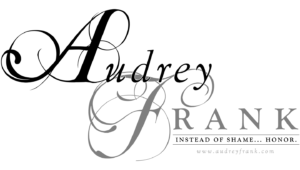Hijab on my Heart

Yet if they “turned to the Lord” the veil would disappear. For the Lord to whom they could turn is the spirit of the new agreement, and wherever the Spirit of the Lord is, men’s souls are set free.
But all of us who are Christians have no veils on our faces, but reflect like mirrors the glory of the Lord. We are transfigured by the Spirit of the Lord in ever-increasing splendour into his own image.
2 Corinthians 3:17-18, Phillips
The wrinkled fruit seller yelled at me, his raised hands punctuating every caustic word.
Shame on you! Where is your scarf? Cover your hair and your husband’s honor!
I had just learned enough Arabic to understand a fraction of his words, but his tone gave no doubt I was in trouble. Frustrated, I stomped back to my house, put on the long robe-like garment women typically wore over their clothes, and cinched a scarf securely around my head, covering every strand of hair.
Then I marched back to the market and bought food for my family’s supper.
I had been living in a Muslim-majority nation for less than a year. I thought if I was conservative, if I wore clothing that was modest, it would be enough. But my eyes and hair looked too much like the native North Africans to distinguish me as an outsider. I blended in too well. Locals commonly assumed me to be North African, and a shameful one at that.
We were trained to be learners. One of our bedrock philosophies is to maintain a learner’s posture across cultures. So I decided to give the hijab a year. I wanted to know what it was like to have my faith judged by an outward garment; I wanted to experience to some small degree what it was like for my female Muslim friends. I wanted to understand what the hijab signified for women, not just men.
Over the next few months, a strange thing happened. My husband’s honor grew in direct proportion to my adherence to the morality rules for women. As I yielded, he was elevated.
Men stopped him in the street and commented.
We can see your wife is an honorable woman of faith.
Suddenly at every afternoon tea, every woman wanted to talk to me, a westerner, about her hijab.
I wear it so men won’t assault me on the bus. Did you hear about that girl last week? She was not wearing one and her short sleeves exposed her arms. A man on her way home from school attacked her. It was all her fault. She should know better.
Everyone tsk, tsked in somber agreement, and took another bite of cake. My friend Zaynab piped up next.
It’s good you are wearing a scarf, even though you are a Christian. Now people will know you are righteous.
Wait, what?
Why is my scarf a sign of righteousness?
Because it covers your heart, not just your head.
A hijab on my heart?
Zaynab was in her early twenties, just about to graduate from college, and engaged to be married.
Zaynab, my heart is already covered in righteousness. I don’t need a scarf.
Women put down their tea glasses and looked intently at me, curious.
The Messiah Jesus sacrificed His life to make me righteous. His blood is like a hijab, covering my heart in righteousness now. It has made me clean. When God looks at my heart, He sees it covered by Jesus’ sacrifice. I am righteous before God because of Jesus.
I stopped wearing the hijab after that day.
If you track world news, you know the revolution happening in Iran right now. After one young woman died while in the custody of morality police, women across Iran began removing their hijabs, throwing them into bonfires, and dancing with freedom in the streets. Courageous women are defying religious rules and making their voices heard across the globe.
The hijab is not merely a political or legal issue, however. The hijab is also a heart issue. For many Muslim women I know, the hijab represents faith and righteousness. For some, it makes them feel safe. What about them?
What is at the heart of the hijab matter filling world headlines right now?
At the heart is a desire for morality. For a higher moral code, a higher righteousness that transcends what we do or do not wear, what religious rules we do or do not obey.
The human heart longs to be clean. Clean is another word for righteous.
Jesus, the Messiah, has made us all clean. Through His sacrifice, the woman behind the hijab can be made clean. Because of His blood, the morality policeman enforcing what he believes to be a righteous law can be made clean.
The #hijab issue brings to light one area of equality between women and men: both are equal in their need for righteousness greater than what they can produce through moral behavior and religious law. Click To Tweet
We all need a hijab on our hearts.
Lord Jesus, help all who long for peace and righteousness today turn to You. Amen.

No Comments